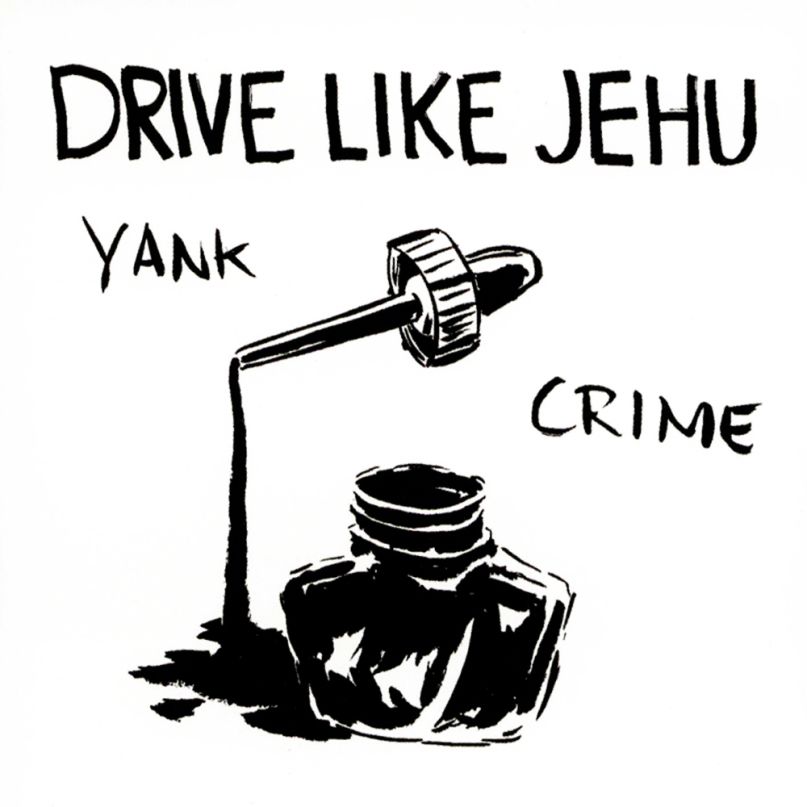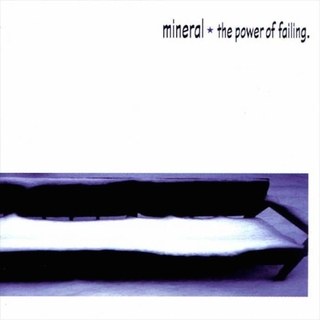
Buried Treasure is a semi-regular feature that explores some hidden musical gems – the rare and forgotten B-sides, covers, hidden tracks, live versions and alternative takes that deserve some recognition.
The further away you get from a pivotal moment in your life, the more important it seems. Sometimes you don’t recognize the moment as being truly crucial as it is happening. It usually takes several years for the weight of it to settle in. It’s this slow passing of time that lends the moment all its lofty nostalgia. A nostalgia that fills us to the brim with terrible longing and beautiful memory. Music has a way of pinning all your best and worst memories to a page. No band did this to me more than Mineral.
The year was 1995. I was an awkward Sophomore in high school in Illinois. My mother was shopping for a birthday present for me and was apparently having difficulty in doing so. Maybe 15-year-old boys are hard to shop for. She would end up running into a guy in a record store at the mall (a fellow I would eventually become friends with) who told her to buy Diary by Sunny Day Real Estate. My mom is a conservative Midwest type and it amazes me still that she took the advice of a stranger in buying a record. I would devour this album whole. Something just clicked. It resonated with me and my extremely impressionable 15-year-old mind. Diary would change me down to my core and would set me down a road of music that, even at 38 years of age, I’ve yet to stray from.
Fast forward to 1997. My best friend Steve and I were all over the Midwest emo scene. This was before GAP got hold of the word and cheapened it. The post-hardcore scene of D.C. that was the birthplace of the sound we adored wasn’t that far in the rear view mirror. This was in the early days of the internet. Steve and I decided we’d start an online “zine”. Looking back at it now, an online “zine” in 1997 was probably a little ahead of its time. We called our little project Quagmire 9 and did music reviews, show reviews and collated all information for upcoming shows in a 100 mile radius of where we lived. Eventually we’d end up getting into the show promotion game.
Imagine 17 and 16 year old kids being able to pull in bands like Cursive and Boilermaker to a sleepy, blue collar town on the Illinois River.
All of this eventually led to a small relationship with CRANK! Records. We’d get little press packages that had all kinds of release information for bands they were distributing. This is where we would become familiar with Mineral, a relatively unknown group at the time from Austin, TX. We hopped in my 1985 Delta 88 and made the 30-minute drive across the river to CO-OP Records in East Peoria and picked up a copy of The Power of Failing, Mineral’s first album. If Diary shook me to my core, The Power of Failing would resonate with me on a biochemical scale. Every vital process of my entire being was owed to this album. I came out the other end of my first listen as something different.
Listening this album in its entirety can still elicit a plethora of feelings inside of me. A lot of my reviews right here on this wonderful site take on a theme of hopeless joy and redemption. These are concepts that I often latch onto. Looking back I would have to believe that it was lead singer Chris Simpson’s vocals that shaped my love for these ideas. The album is just full of moments where it feels as if the world may collapse in on itself, only to come up for air and become awash in the sun’s healing rays.
“Tears stream down my cheeks only to meet their redeemer and be wiped away. And there is joy.”
I’m unsure if it was the equipment used or just a lack of money for quality studio time, but The Power of Failing has one of the most incredibly raw and visceral sounds on a record that I can remember. This rough-hewn sound gives The Power of Failing an almost violent edge. It makes the melodic portions uneasy but uplifting while the more riotous and distorted parts come across as angry but supernal. It would be difficult to imagine this record with anything other than the sound it has. It’s since been remastered and it managed to retain the punch-you-in-the-gut sound that made it so absolutely brilliant.
https://www.youtube.com/watch?v=qII7RF5rDtM
I remember trying to get all the Smashing Pumpkin and Veruca Salt kids in high school to give Mineral a chance. They just didn’t get it. The younger me couldn’t get over how they weren’t moved by what they were hearing.
Mineral’s importance to the mid-90s emo scene is undeniable. There were a lot of bands doing the Rites of Spring thing back in those days, but none of them did it with as much raw emotion as Mineral. The lyrics weren’t weighted down in hyperbole or symbolism. Chris Simpson spoke his mind and put everything in such a beautifully poetic prose. It tore at your heart and left you smiling with a sort of recognition. Pardon the cliché, but he was able to paint a picture. A picture we’ve all found ourselves in but were always bereft of the words to accurately describe it.
“And I don’t know if I should say “I’m sorry” or “Thank you”. I’ve tried to speak but the tears choke the words. And I think I finally know what they mean when they talk about joy.”
This is just part of what made Mineral so damn special. If the lyrics and vocal melodies weren’t tearing at your insides, it was the guitar, bass and drums. They just had a way of making their instruments cry in torment. I understand I’m starting to sound a little corny here, but before Mineral and bands like SDRE, guitars and rhythm played second fiddle to vocals. Listen, I was an idiot kid but Mineral opened my eyes musically to concepts, ideas and feelings that I barely knew existed.
It sounds weird but this all started with my mom. I honestly have her to thank for all of this. If she hadn’t gone against her better, more conservative judgement and bought a Sunny Day Real Estate album at the behest of some skateboarding punk kid behind a desk at a record store, none of this would have happened. Hell, I wouldn’t even be writing this. Thanks, momma.
MINERAL LINKS:
Facebook
Mineral Official Page
Twitter











